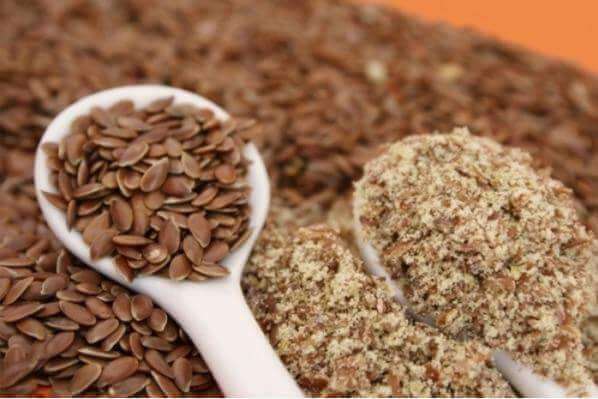Losing weight is a journey that holds immense significance, particularly for obese women who strive for a healthier lifestyle. In this article, we will explore the best strategies to help them embark on a successful weight loss journey.
I. Introduction
A. Definition of Obesity
Obesity, a condition characterized by excessive body fat, poses various health risks and challenges.
B. Importance of Weight Loss for Obese Women
Shedding excess weight not only improves physical health but also enhances mental well-being, boosting confidence and self-esteem.
II. Understanding Obesity
A. Causes of Obesity
Factors such as genetics, unhealthy diet, and sedentary lifestyle contribute to obesity.
B. Health Risks Associated with Obesity
Obesity increases the risk of various health issues, including diabetes, cardiovascular diseases, and joint problems.
C. Psychological Impact
The emotional toll of obesity highlights the need for holistic weight loss strategies.
III. Importance of Healthy Lifestyle
A. Balanced Diet
Adopting a balanced and nutritious diet is fundamental to weight loss.
B. Regular Exercise
Incorporating regular physical activity not only aids in weight loss but also promotes overall well-being.
C. Adequate Sleep
Sufficient sleep is crucial for hormonal balance, appetite regulation, and overall health.
IV. Customized Weight Loss Plans
A. Consultation with Healthcare Professionals
Seeking guidance from healthcare experts helps create tailored weight loss plans.
B. Tailored Diet Plans
Customized meal plans take individual preferences and health conditions into account.
C. Personalized Exercise Routines
Exercise routines adapted to one’s fitness level and preferences ensure sustainable progress.
V. Mindful Eating Practices
A. Importance of Mindfulness
Mindful eating promotes awareness of food choices, preventing overconsumption.
B. Portion Control
Monitoring portion sizes is crucial for effective weight management.
C. Choosing Nutrient-Dense Foods
Opting for nutrient-dense foods ensures the body receives essential vitamins and minerals.
VI. Staying Motivated
A. Setting Realistic Goals
Establishing achievable milestones helps maintain motivation throughout the journey.
B. Celebrating Small Victories
Acknowledging and celebrating small achievements boosts morale and keeps motivation high.
C. Building a Support System
Having a support network, including friends, family, or support groups, provides encouragement during challenging times.
VII. Overcoming Challenges
A. Dealing with Emotional Eating
Developing coping mechanisms for emotional eating is crucial for long-term success.
B. Managing Cravings
Strategies for handling cravings prevent derailment from the weight loss path.
C. Addressing Plateaus
Understanding and overcoming plateaus is essential for sustained progress.
VIII. Professional Support
A. Role of Nutritionists
Nutritionists play a crucial role in designing effective and sustainable meal plans.
B. Benefits of Working with Personal Trainers
Personal trainers guide individuals in creating fitness routines that align with their goals.
C. Consideration of Weight Loss Surgery
In some cases, weight loss surgery may be a viable option, and consulting with healthcare professionals is essential.
IX. Embracing a Positive Body Image
A. Celebrating Progress
Focusing on achievements, no matter how small, contributes to a positive body image.
B. Focusing on Overall Health
Shifting the focus from appearance to overall health promotes a healthier mindset.
C. Rejecting Societal Pressures
Disregarding societal beauty standards fosters self-acceptance and a positive self-image.
X. Case Studies
A. Success Stories of Obese Women
Examining real-life success stories provides inspiration and valuable insights.
B. Lessons Learned from Their Journeys
Understanding the challenges and triumphs of others helps in navigating one’s own weight loss journey.
XI. Holistic Approaches
A. Integrating Mental Health Support
Addressing mental health is integral to a comprehensive weight loss strategy.
B. Incorporating Self-Care Practices
Prioritizing self-care enhances overall well-being, contributing to successful weight loss.
C. Balancing Physical and Emotional Well-Being
Achieving a balance between physical and emotional health is key to long-term success.
XII. Sustainable Lifestyle Changes
A. Gradual Implementation
Introducing changes gradually ensures long-lasting habits.
B. Long-Term Commitment
Recognizing weight loss as a long-term commitment promotes consistency.
C. Adapting to Changing Circumstances
Flexibility in adapting to life changes ensures continued progress.
XIII. Tracking Progress
A. Utilizing Technology
Leveraging technology, such as fitness apps and wearables, helps in monitoring progress.
B. Keeping a Journal
Maintaining a journal aids in reflecting on habits, identifying patterns, and making necessary adjustments.
C. Regular Check-Ins with Healthcare Providers
Regular consultations with healthcare providers ensure that the weight loss journey is on track and healthy.
XIV. Addressing Medical Conditions
A. Checking for Underlying Health Issues
Addressing potential medical conditions contributing to weight gain is vital.
B. Medication Considerations
Consulting with healthcare professionals regarding medication effects on weight is essential.
C. Holistic Treatment Plans
A holistic approach considers both physical and mental health in the weight loss journey.
XV. Celebrating the Journey
A. Recognizing Achievements
Celebrating milestones reinforces positive behaviors.
B. Encouraging Self-Love
Embracing self-love is a powerful motivator for sustained weight loss.
C. Inspiring Others
Sharing personal successes can inspire and support others on their weight loss journeys.
Conclusion
Embarking on the best way to lose weight for obese women involves a holistic approach, encompassing physical and mental well-being. By adopting personalized strategies, embracing a positive body image, and seeking professional guidance, obese women can achieve sustainable and fulfilling weight loss.
FAQs
- Is rapid weight loss safe for obese women? Rapid weight loss can pose health risks, and it’s advisable to consult healthcare professionals for a safe and effective approach.
- How important is exercise in a weight loss journey? Regular exercise not only aids in weight loss but also improves overall health and well-being.
- Can emotional eating be overcome? Yes, with the right strategies and support, individuals can develop healthier coping mechanisms for emotional eating.
- Are weight loss surgeries a guaranteed solution? Weight loss surgeries are effective in some cases, but consultation with healthcare professionals is crucial to determine suitability.
- How long does it take to see significant results? The timeline for significant results varies, but focusing on gradual progress and long-term commitment is key.
Also Read:
- 10 Traditional Indian Renal Diet Recipes for Kidney Patients in 2025 - February 2, 2024
- Kerala Diet Plan for Weight Loss: A Comprehensive Guide - July 19, 2023
- Is Consuming Pav Bhaji Good for Weight Loss? - May 25, 2023



